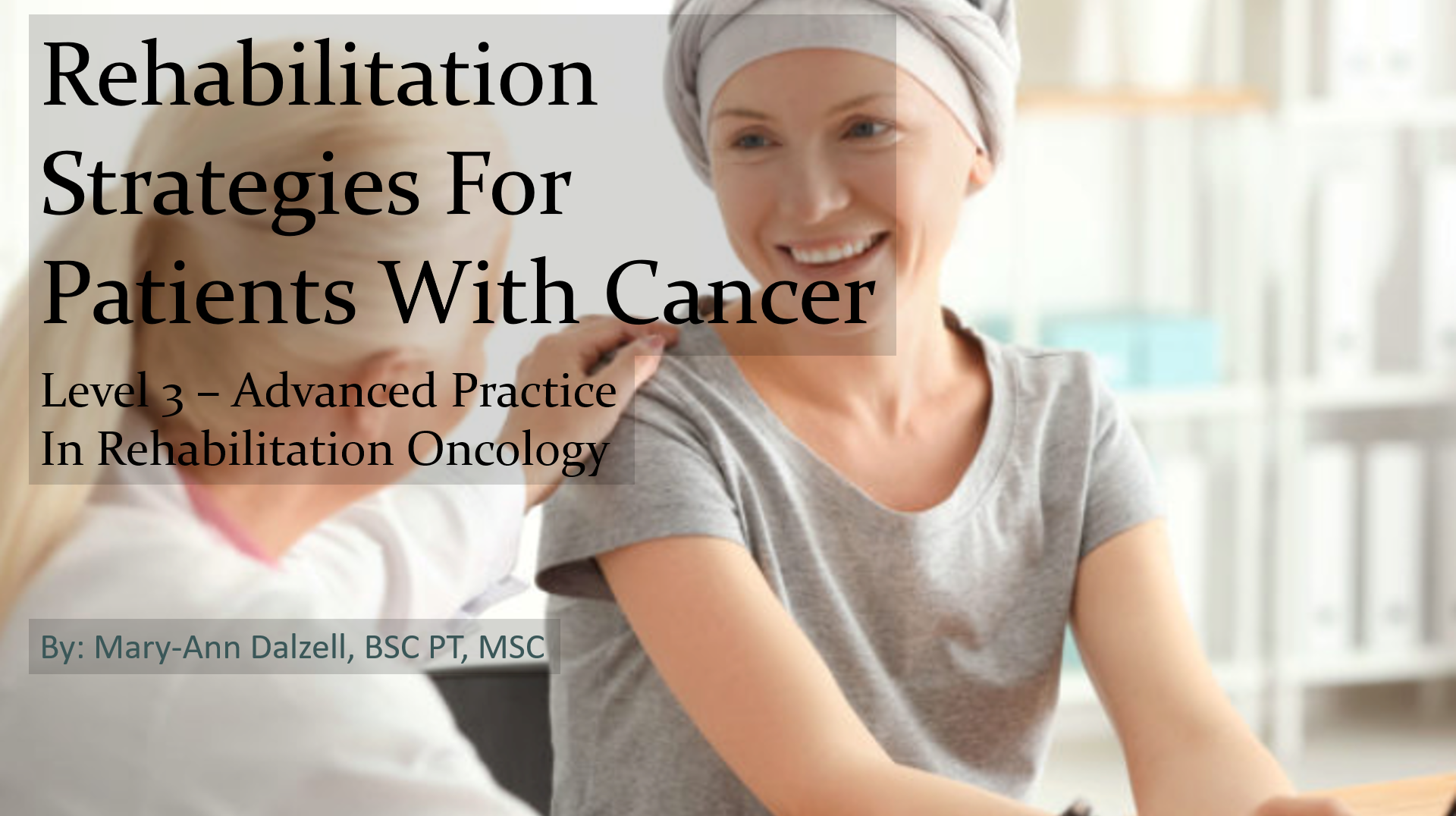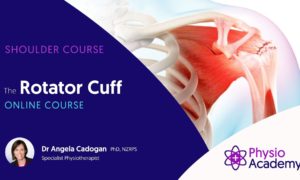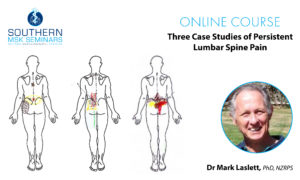This certification in oncology rehabilitation is for all clinicians working in hospitals, home care or private clinics who treat patients with a history of cancer or who have been diagnosed with cancer. The certification is composed of 3 different levels that can be completed online. A face-to-face workshop-style certification will also be available in 2021. The content of this entire continuum of courses integrates the notions of pathophysiology, the impact of medical treatments on different systems (cardiovascular, musculoskeletal, neurological), the symptoms associated with cancer (pain, fatigue, muscle atrophy) and the rehabilitation strategies.
You can consult the course description for Level 1 and Level 2. Level 2 is a prerequisite for level 3.
This course will address specific problems related to the different cancer sites (breast, prostate, lungs, head, neck, hematopathies). It will focus on the rehabilitation of advanced disease and more complex functional problems related to cancer treatment interventions. It will include protocols for managing common reconstructive surgeries, exercise progressions for patients with bone metastasis, lower limb lymphedema, and palliative care. In addition, select topics on differential diagnosis of cancer related musculoskeletal conditions, rehabilitation and vocational counseling for return to work, and setting up a rehabilitation oncology practice in both public and private clinical settings will be covered.
Course plan:
Module 1 : Breast cancer reconstruction and rehabilitation
Module 2: Rehabilitation of patients with head & neck cancers
Module 3: Soft Tissue and Bone Sarcoma
Module 4: Management of patients with bone metastasis –Part 1
Module 5: Management of patients with bone metastasis –Part 2
Module 6: Gynecological Cancer-Related Lymphedema: Considerations for an Under-Represented Lymphedema Population
Module 7: Rehabilitation of patients with advanced disease and principles of palliative care
Module 8: Return to work (RTW) following cancer treatment
Module 9: Differential diagnosis of common conditions related to cancer
Module 10: Models of care and cancer rehabilitation service development
* You can view the online course whenever you want within the 10 week period from date of purchase
Level 4 : will be an in-class course that will follow the completion of Levels 1, 2 and 3. This course will take place in 2021, 1 time per year in Quebec.
OBJECTIVES
Derive intervention strategies for more complex patient populations with significant rehabilitation needs. These populations will include:
Head & neck cancer patients with reconstructive surgery
Breast cancer patients with reconstructive surgery
Young patients with osteosarcoma
Patients in palliative care with advanced disease and multiple metastasis
Educate and prescribe exercises for patients with more advanced cancers
Manage risk, educate and prescribe exercises for cancer patients with bone metastasis and facial or lower limb lymphedema
Recognize barriers to return to work and develop diverse rehabilitation programs to retain cancer patients in the workforce.
Develop a cancer rehabilitation program in public or private clinical settings based upon successful models of care in the literature





